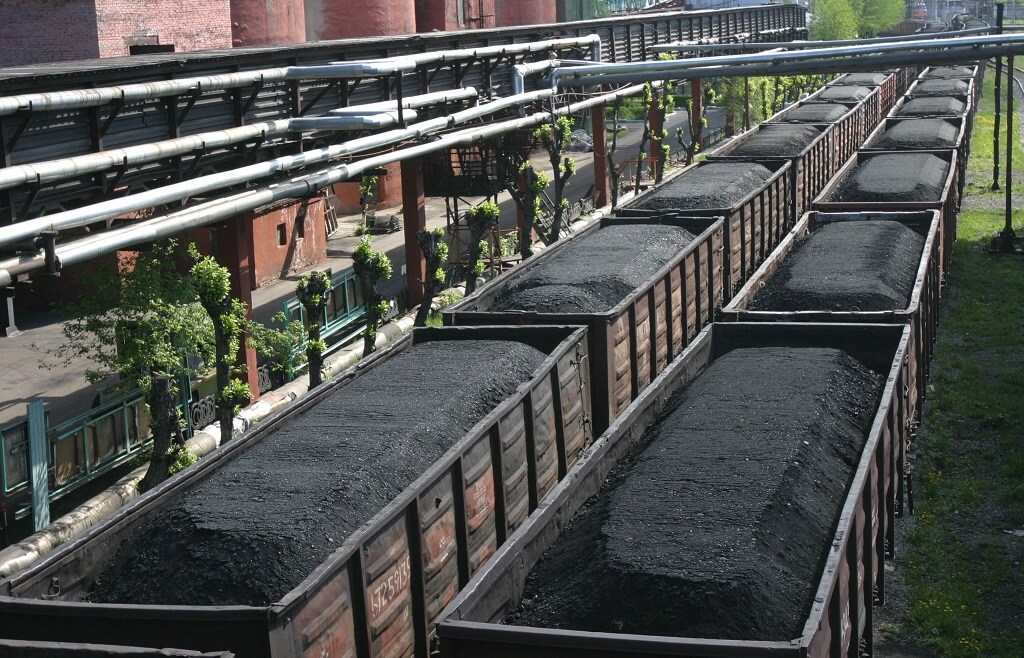Volodymyr Kish.
There was news this week from Ukraine about an impending power crisis. By this, I am not referring to political power but the electrical kind that powers light, heat and appliances. It seems that a significant proportion of Ukraine’s electrical power grid is fed by coal burning power plants. That bit of information in itself would be of little interest, except for the fact that the coal used has mostly come from coal mines on the rebel side of the Donbas conflict zone.
Yes indeed, as hard as it may be to believe, for the past two years of Russia’s dirty little war on Ukraine, coal from rebel and Russian controlled mines has been sold and shipped to Ukraine. The rebels, of course, have been levying a hefty tax on this coal, and then using the revenue to fund their war on Ukraine. In straight terms, Ukraine has been buying coal from the enemy, and the enemy has been using the revenue to wage war on Ukraine. In the middle of all this is Ukraine’s richest and arguably most powerful oligarch Rinat Akhmetov, who owns most of these mines in the Donbas and is no doubt profiting nicely from this curious war.
This seemingly incomprehensible state of affairs would have mostly gone unnoticed were it not for the fact that a bunch of irate and armed Ukrainian ultra-nationalist brigades have for the past several weeks been imposing a blockade of the rail lines used to transport the coal across the line of conflict. The Ukrainian government is warning that if the blockade continues, there will be power shortages that will cause, amongst other things, the shutdown of many factories, creating significant unemployment in an already weak economy.
It should be noted that this trade in coal is not the only questionable Ukrainian economic transaction with Russia despite a de facto state of war between the two countries. It seems that in 2016, about 10% of Ukraine’s total exports still went to Russia. This is considerably less than the levels before this latest conflict in the Donbas broke out, yet it still begs the question as to why there is any trade at all. If you are in a state of war, why are you still trading with the enemy?
To be fair, the Ukrainian government is caught between a rock and a hard place. Until very recently, Russia was Ukraine’s biggest trade partner, and the Ukrainian economy was deeply dependent on that trade. Weaning off of that reality, without causing deep economic shock is not easy. Further, much of Ukrainian industry is still directly or indirectly dependent on coal as a primary fuel source, and the majority of that coal has come from the eastern part of Ukraine that is now under Russian/rebel control.
Complicating matters even further is the fact that much of Ukraine’s heavy industry and the energy sector is under oligarchic control, and most of these oligarchs are either Russian sympathizers or have no moral qualms in doing business with the Russians or the rebels.
All of this has now blown up into the open and is causing both Poroshenko and the Ukrainian government no end of grief, as they are now caught in a no-win situation. They fear that using force to end the blockade would more than likely end in violence and death, as the ultra-nationalists are well armed. Besides there are a significant number of Ukrainians, perhaps even a majority, that agree with their position on this matter. Why is Ukraine trading with the enemy and providing them with the financial wherewithal to continue the conflict?
The government is scrambling to deal with the crisis, declaring a state of emergency in the energy sector, but there are no quick solutions. Apparently, the power plants are set up to use the particular kind of anthracite coal that comes from the Donbas, and using coal from alternate sources would require some refitting and adjustments to these plants. Switching to natural gas or other sources would take even longer.
What this points out more than anything else, is a lack of foresight and planning within the government. The government should have known two years ago that this type of situation would inevitably arise, and should have started taking steps then to reduce their vulnerability. This is what happens when you put your trusted political cronies in charge of key government ministries rather than technically expert and competent people. I wouldn’t be surprised if this turned out to be start of a chain of crises that could lead to the downfall of the Poroshenko government in the not too distant future.
Share on Social Media


































